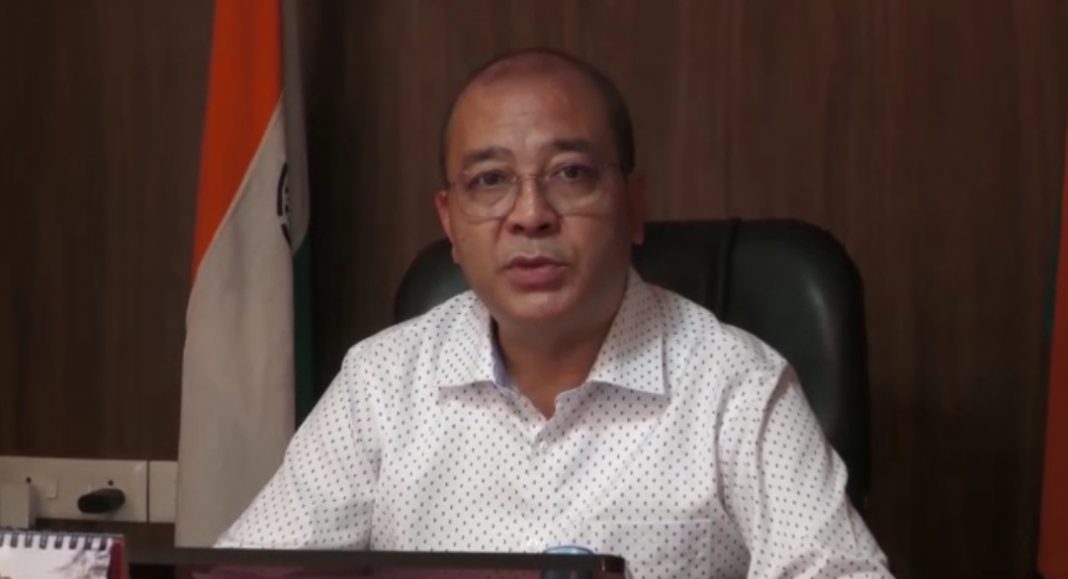SHILLONG, Sept 19: Assembly Speaker Metbah Lyngdoh on Monday requested the state government to honour late Mavis Dunn Lyngdoh, who was the first woman in India to become a Cabinet Minister, by putting up her full size statue in the city.
“I would like to request the Government to consider putting one full size statue of Late Mavis Dunn Lyngdoh, in the premises of the State Central Library and honour her achievement and service to our people,” Lyngdoh said in his letter to the Chief Minister Conrad K Sangma.

Appreciating the state government’s effort to celebrate the Golden Jubilee in a grand and befitting manner, he said it will also be proper for us to honour late Mavis Dunn Lyngdoh, who was the first women in lndia to become a Cabinet Minister.
Her political career began in 1937, when she was elected a member of the Assam Legislative Assembly as an independent candidate and she was the first woman at the age of 33 to occupy this post, he added.
Mavis Dunn Lyngdoh was the first woman in India to become a cabinet minister. She was born on 4 June 1906, to H. Dunn and Ka Helibon Lyngdoh, Presbyterian Christians of moderate means. Her father’s brother, Edward W. Dunn, had been made a Member of the British Empire in recognition of his services to civil engineering.
She studied at the Welsh Mission Girls’ School, Shillong, the Diocesan College and the Bethune College, Kolkata, where she obtained her BT degree. While in Kolkata she first met Mahatma Gandhi. She was also the first Khasi woman to qualify to practice law from the University Law College, Guwahati.

Her political career began in 1937 when she was elected a member of the Assam Legislative Assembly as an independent candidate, the first woman to accomplish this. In 1939, Sir Mohammed Syed Saadulla invited her to join his government as a cabinet minister.
She did so, becoming the first woman to attain this post at the young age of 33. She held the health portfolio, and was able to open the posts of nurses in government hospitals to all trained women, whether they had learned their skills in public or private institutions. This was of great benefit to the Northeast as there were no state training schools for nurses there.
Mavis was defeated in the elections of 1946 and largely retired from politics, but continued to be active in social work.
Throughout her career she stayed away from party politics, and while this prevented her from being embroiled in the conflicts that often rose within parties, it also meant that she was confined to the sidelines of political action.
She was associated with the government of Assam after independence in an advisory capacity. Just before the end of her life she toured the West, giving lectures in the US and UK. She was tall and attractive, with a cultured taste and style and a modern way of living. She never married and was the first Khasi woman to drive a car.
Her example gave independent India hope that women from marginalized communities might come forward and make their mark in public life.




